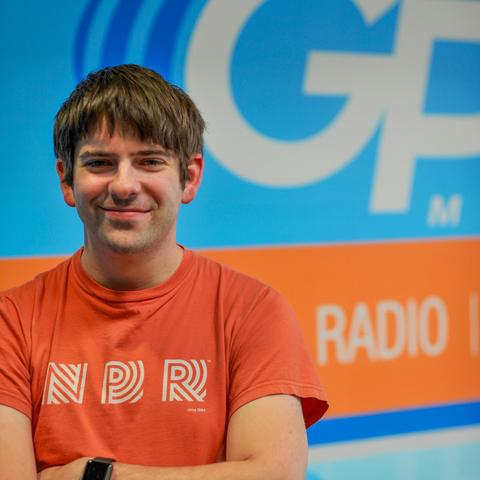Section Branding
Header Content
What You Need to Know: Growing a Garden While Sheltering in Place
Primary Content
Georgia Public Broadcasting’s new series What You Need To Know: Coronavirus provides succinct, fact-based information to help you get through the coronavirus pandemic with your health and sanity intact.
There are major concerns about the nation’s food supply amid the pandemic. We’ve heard about disruptions to meat processing facilities, shuttered restaurants, and the challenges facing farmers.
Those concerns, along with more time at home, have spurred some people to try to grow their own food. Nuri Icgoren of Atlanta’s Urban Sprout Farms is on the front lines of that effort. GPB’s Sean Powers talked with him as he built a garden bed for Cory Henry of Powder Springs, Georgia.
Nuri: Hey, I'm out here actually at a client's house who requested a raised bed, Cory Henry here. We're sitting here, tinkering with the bed in the garden, kind of of showing him what's going on here. And we just installed it. So this is right after we installed a raised garden bed in his residence.
Oh my, it's absolutely — how long does something like that take.
Nuri: To actually install, probably less than an hour. But the plants take time to grow and, you know, it takes time to bear fruit.
Nuri, as the pandemic began, did you think you would be getting calls from people who want to take a vested interest in starting their own garden?
Nuri: Absolutely. As a farmer, this is kind of the thing that got me started in the farming, wanting to be self-sustainable and have a little solidarity, sovereignty with my food system and the food that I eat and kind of prepping, you know, in a sense for this. So me having farms, having plants and soil and the community behind us doing this, you know, it's pretty much — the framework was there for this to be able to just run.
And I see right behind you is Cory Henry, who you're helping. Hey, Cory, wondering, how did the pandemic really make gardening more of a priority for you?
Cory: We are not 100% sure that food will always be there. It's not something that you can assume anymore since COVID-19. One because of the infrequency of our ability to get out and go shopping wherever we want. We don't know how the disruptions in the supply chain — we can't trust that things will always be there like you used to be able to. Because of that, we've made the decision to grow our own food or at least supplement our food supply.
Speaking of that food, what do you plan to grow?
Cory: Oh, we're growing peppers, we're growing corn. As you can see here, we got corn, we got peppers, we got tomatoes, cucumbers, parsley, eggplants — all things that we eat — squash, basil, all things that we eat. Once, if we've had some success, we'll start to get into maybe some melons, different things that the kids like to eat for snacks.
We're a very snacky family, so the more that we can do that with actual food grown, it'll be a lot easier than eating chips and Doritos and cookies and all the other things that have been easy to grab.
You're not throwing shade on Doritos, are you?
Cory: Not at all, I love Doritos. That's probably my — Doritos help me make this decision.
Are you being serious?
Cory: Otherwise, I'll be buying stock in Doritos.
Alright. Well, you know, it's a shame Doritos can't grow off of trees. Nuri, these are really incredible, stressful times as we're all encouraged to stay home. I'm wondering, how can gardening be therapeutic?
Nuri: Well, many different ways. First, coming outside and getting some sun on your skin, getting some sun in your eyes and activates your oculo endocrine systems, creating all types of good hormones, getting some fresh air out of the house, which is where most of the pollutants are at, stored. Then getting your hands on the soil, reconnecting with Mother Earth by grounding yourself, disconnected from your phone — you know, a little bit of stress and distress removal.
Kind of funny to think that a pandemic in, you know, in what you're now 42 going to 43, that a pandemic is kind of what it took to get you on to this urban agriculture bandwagon?
Cory: Yeah, my parents will probably laugh at the thought that it took the whole world to stop for us to be smart enough to start growing our own food. But I'm happy and I'm hopeful about the different lessons about life that we'll learn from watching the plant process. Some of the things that Nuri said about putting your hands in the dirt and just general healthiness going outside, it's so easy to get wrapped up in our Zoom calls and to justify locking ourselves up in our cages and just kind of working the pandemic away. But I think this will be good, this will be good for my mental health as well.
Nuri: The best time to plant a fruit tree is today or yesterday. You know, there's lots of space where people may not even think — like instead of having decorative trees, you can have fruit trees and blueberry bushes and things like that. It's just being aware that that's even possible. That awareness comes with education and knowledge and connecting, connecting with like-minded individuals. That's going to happen.


